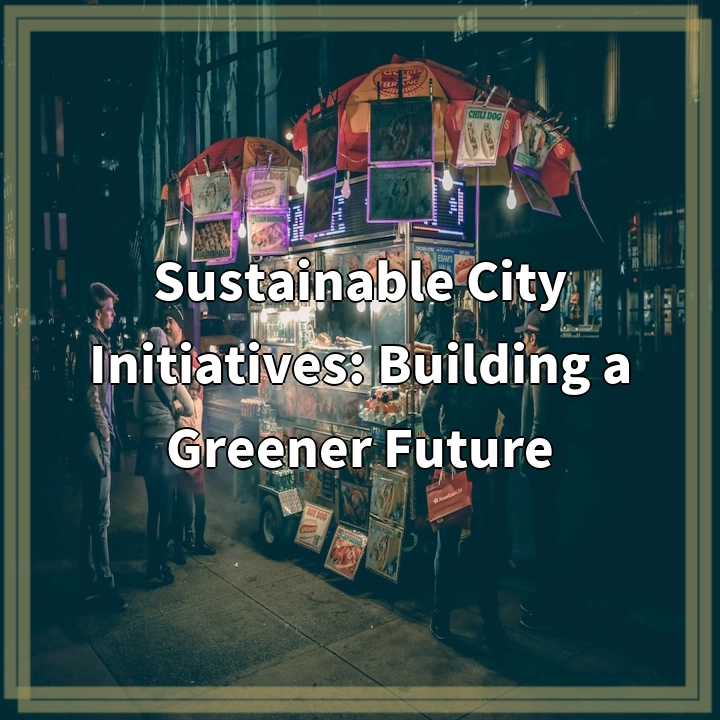
What is Sustainable City Initiatives?
Sustainable City Initiatives are forward-thinking projects aimed at creating urban environments that prioritize ecological sustainability, resource efficiency, and quality of life for residents. These initiatives involve the integration of environmentally-friendly principles into urban planning, infrastructure development, transportation systems, waste management, and energy consumption, among other key aspects of city living.
Real-World Problems Associated with Sustainable City Initiatives
Lack of Political Will
One of the significant challenges faced by sustainable city initiatives is the lack of political will. Implementation of these initiatives requires long-term planning, financial investment, and strong leadership. However, politicians often prioritize short-term gains over long-term sustainability goals, making it difficult for these initiatives to gain enough traction and support.
Resistance to Change
Resistance to change from various stakeholders, including developers, residents, and businesses, can hinder the progress of sustainable city initiatives. Many are comfortable with traditional, inefficient practices and may be resistant to adopting new technologies, approaches, or regulations that promote sustainability. Overcoming this resistance and fostering a culture of sustainability requires effective communication, education, and community engagement.
Financial Constraints
Implementing sustainable city initiatives often requires significant upfront investments in infrastructure, technology, and planning. Limited financial resources can pose a significant challenge for cities, particularly those with already strained budgets and competing priorities. Finding innovative funding mechanisms and securing public and private partnerships becomes crucial for overcoming financial constraints.
Social Inequality
Sustainable city initiatives need to address issues of social inequality to ensure that all residents benefit from the transition to a greener future. Historically marginalized communities often lack access to resources and have limited representation in decision-making processes. Failing to address social equity can lead to disproportionate distribution of benefits and perpetuate environmental injustices.
Overall, while sustainable city initiatives hold immense potential for building greener, more livable cities, addressing the real-world problems associated with implementation is crucial for ensuring their success and making a positive impact on both people and the planet.

Potential Solutions for Sustainable City Initiatives
Building Political Support
To overcome the lack of political will, it is crucial to engage in advocacy efforts, raise awareness about the benefits of sustainable city initiatives, and demonstrate successful case studies from other cities. Building coalitions and partnerships with like-minded organizations and leaders can help garner support and make sustainability a higher priority on the political agenda.
Education and Community Engagement
Addressing resistance to change requires effective education and community engagement strategies. Providing clear and accessible information about the importance of sustainability and its benefits for individuals and communities is essential. Engaging residents, businesses, and other stakeholders in the decision-making process, seeking their input, and addressing concerns can help create a sense of ownership and foster a culture of sustainability.
Securing Funding and Partnerships
Finding innovative funding mechanisms and securing public and private partnerships are key to overcoming financial constraints. Exploring options such as green bonds, public-private partnerships, and seeking grants or funding opportunities can help finance sustainable city initiatives. Collaborating with businesses, academic institutions, and non-profit organizations can bring additional expertise, resources, and support to implement sustainability projects.
Addressing Social Equity
Addressing social inequality is crucial for sustainable city initiatives to be successful and fair. This involves actively including marginalized communities in the decision-making process, ensuring equitable access to resources, and considering the specific needs and challenges of different groups. Implementing policies and programs that prioritize affordable housing, public transportation, green spaces, and employment opportunities can help create more equitable and sustainable cities.
By implementing these solutions, cities can overcome the challenges associated with sustainable city initiatives and work towards building a greener future that benefits all residents and the environment.















